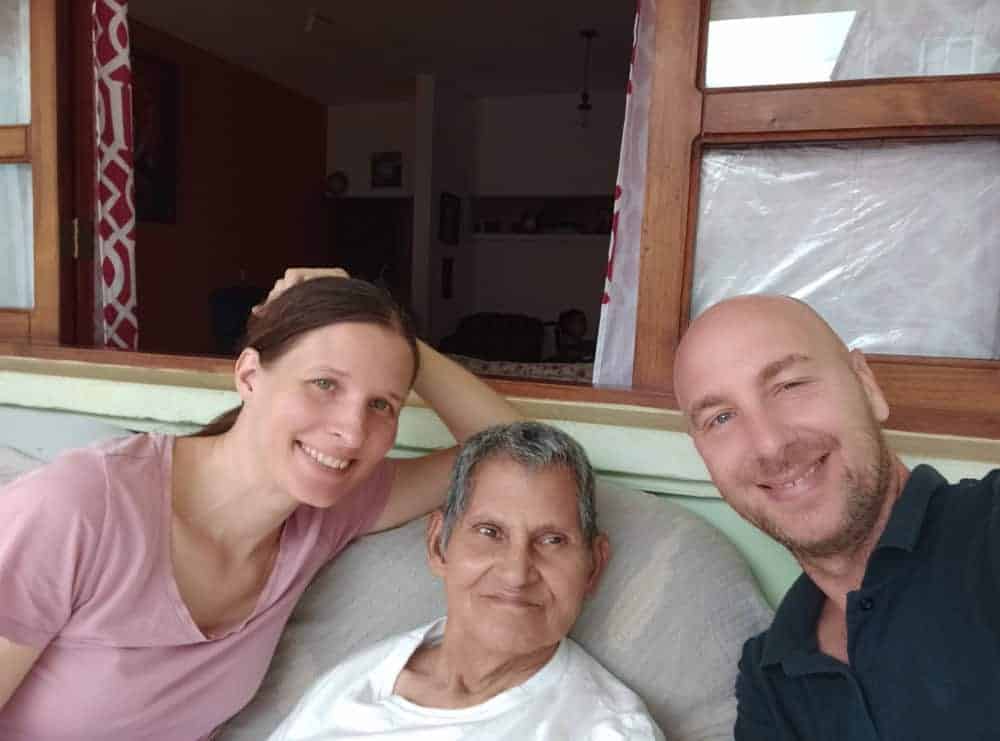Filipinos usually immediately associate the word ‘slum’ with crime. With a reason, of course.
In these poorest and most marginalized parts of Manila, violence, shooting and drugs until recently were the number one problem.
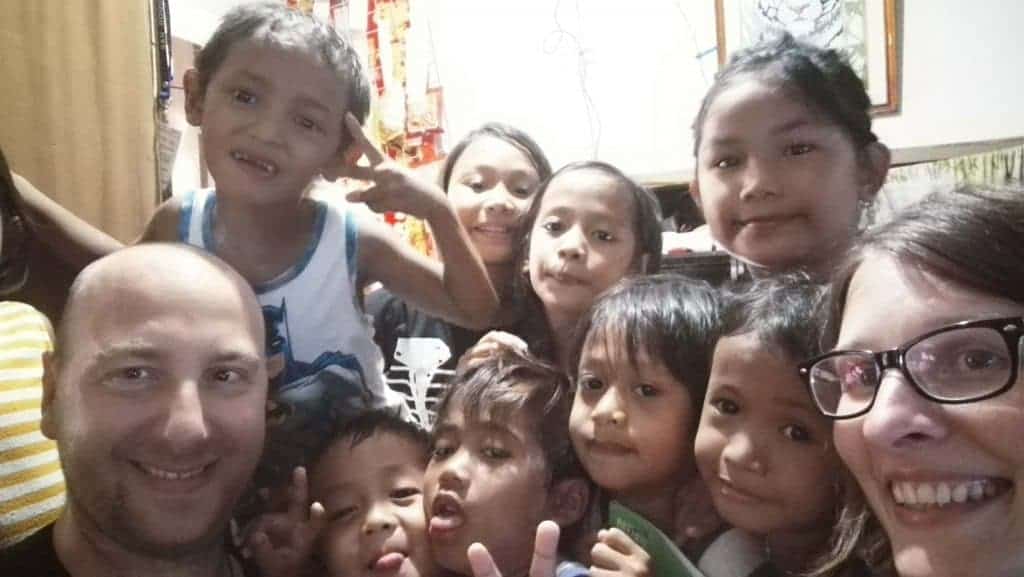
‘Even here in front of our house you could get amphetamines for only 100 pesos (2 euro),’ we were recently told by our young boy hosting us in the slum.
People without work, without education, and often without food, out of despair resorted to drugs and alcohol. The chaotic political situation and corrupt government were to allow the issue for a long time.
When we tell the people in town that we’re operating in Navotas, they would usually nod their heads with good faith advise: ‘Just be careful.’
Security – wild west style

If you follow the news, then you have certainly heard about the notorious Rodrigo Duterte.
The Head of State being in power just over a year and a half, has boldly, decisively, to Westerners mostly ‘wild-west style’ approached to solve the problem of crime in the country.
Police officers were assigned special powers which allow them even to kill drug addicts and drug dispatchers, if they do not cease their activities.
No mercy
People from Navotas were telling us stories about people who were actually killed that way.
“My neighbor was killed by a police officer,” certain woman in Navotas old us. “We all knew he was a smuggler, dealing and selling drugs. We told him that the new president has no mercy and that he will be killed if he does not quit.”
On the basis of anonymous reports the police officers first seek evidence in the suspected individual, followed by the first strike.
‘”When they came to him and find drugs, they warned him and give him another chance. But he still did not quit. When they came the next time and found drugs again, they took him to an unknown location. No return.’
Controversy
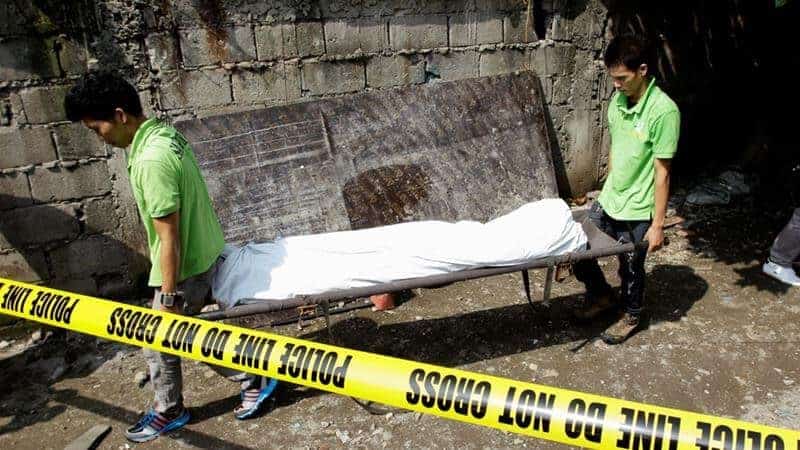
Source: Al Jazeera
Such a drastic and radical approach of course brings a lot of concern at the international community and in church circles, in particular with the Philippine Catholic Church.
When we were in Navotas, attending the Holy Mass, end of the ceremony was followed by a special PRAYER for the President and a request to God to bring him to ‘senses”. Violence, whatever the motives, may not have a place in society.
On the criticism of the Catholic Church, President Duterte responded with these words:
‘The Church really does not understand. It is aware of the drug problem, knows that drugs are a major problem in the Philippines, but nevertheless argues that the extra-judicial killing of drug addicts and dispatchers is bad. I suggest that all priests alone shall first attempt to try Shabu (amphetamine drugs) and they will understand. Some bishop should try it too.’
In any case, the President’s approach for the time being is a ‘success’. Crime has decreased significantly, police officers and security guards can be found literally at every step of the way, at every major store in the Philippines. Many got employed this way. So can we two be more relaxed by walking in the slum, soaking up their lifestyle.
Shower the Filipino style
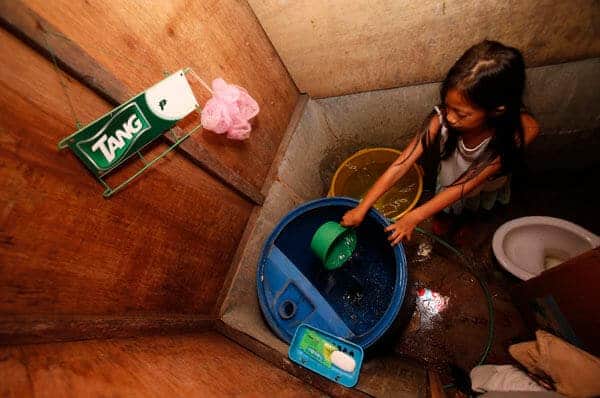
I would have lied if I said that we were easily attracted to their way of life. Accommodation is scarce, with no warm water. Well, with 35 degrees it is not needed, really.
The bathrooms are simple, you can wash yourself by ‘pouring out’ some water. Shower, as we know it, does not exist here.
In one corner of the bathroom, usually there is a big bucket of water placed under the hose, containing a plastic pot, which is used to capture water and spill it over your body. Very ordinary. The pot is also used for cleaning and washing up the toilets afterwards.
In fact, it’s not that different at all, except that instead of: “Have you already showered?” I ask Silva the following: “Have you already been spilled by the water today?”
Slum markets
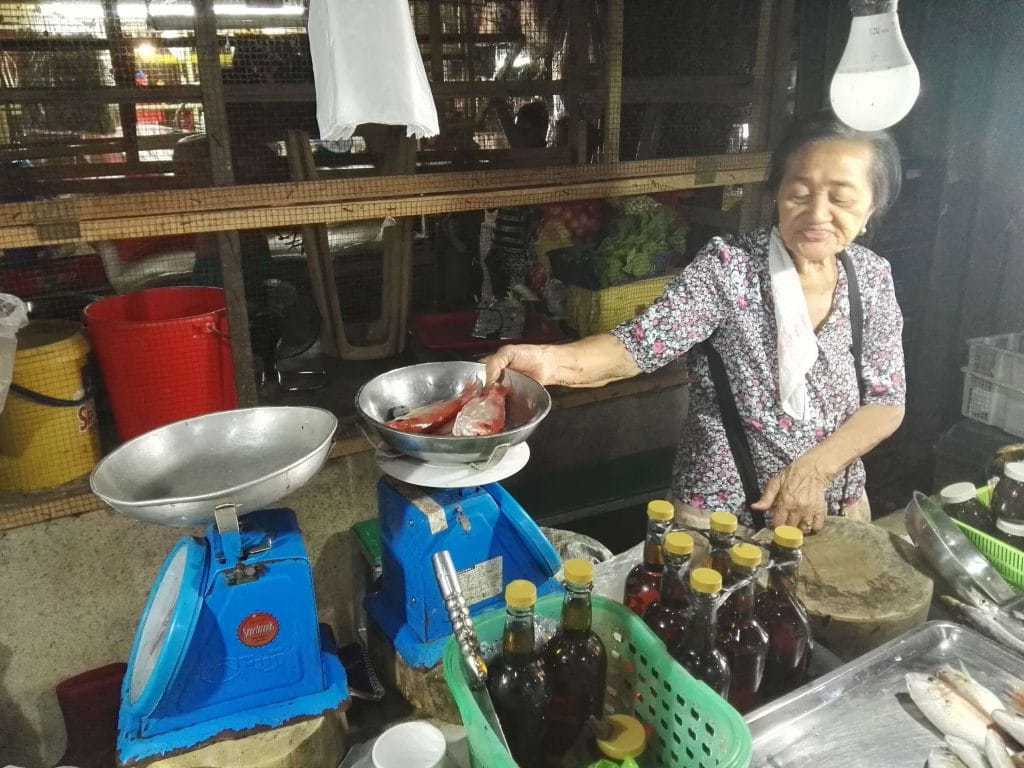
One morning, Harlyn took us with for the shopping. In the slum there are quite a few ‘mini’ marketplaces where you can buy fresh fruit, vegetables, meat, fish and drinks.
Walking along the slum is always a unique experience. Not only because Silva and I attracted a lot of attention and it felt like being a Hollywood star (which is really not pleasant at all), but also because it’s really necessary to aquire some skills on how to buy local food.
It is simply necessary to accept the fact that smell of mud and urine, dirty water from the sewage on the market floor and its happy eaters (cockroaches and other insects) do not mean that food is contaminated and inedible as well.
Excellent cuisine
On the contrary. Seafood (Navotas is a fishing island), fish, crustaceans, shrimp and mussels are always fresh and extremely tasty. You could bring some crabs home still alive. Smoked Milky Fish, typical of the Philippines, was particularly fascinating.

By the way, the Filipinos are exceptional chefs and they are particularly prominent in the feast. Even if they could not easily afford food, there is never too much and too expensive for their guests. Wonderful hosts!
The language
One of your email questions is how we communicate with people. Most of them speak English, and very exemplary. After all, the Philippines were an American colony for more than thirty years and a Spanish one for more than 3 centuries.
This can be marked well by listening to their conversations. While they are talking Filipino, you could hear English and Spanish words as well; at times this could be adequate to understand the context of the conversation. English is a compulsory subject at school; from the first grade onward.
English: Philippine competitive advantage
Knowledge of English is the main competitive advantage of the Philippines over other Asian countries. Therefore, many international corporations set up their call centers to communicate with their customers in the Philippines. According to some estimates, it accounts for as much as 20% of the country’s economy.
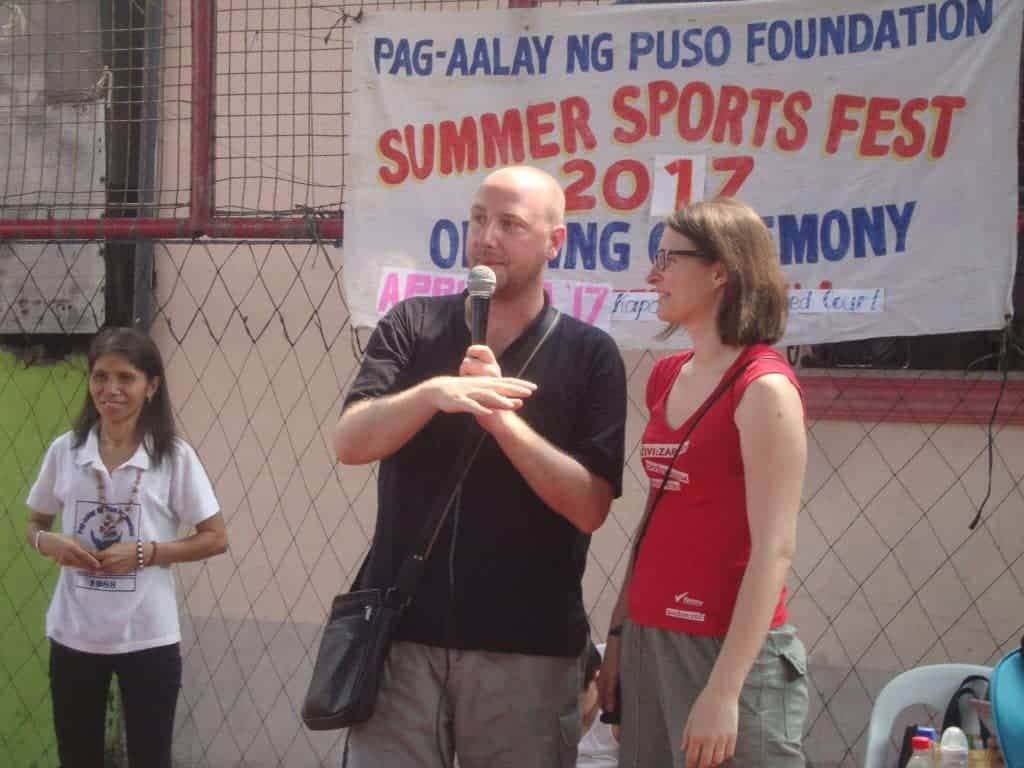
Many people from the slums work in call centers as well. They live in the barracks in difficult settlement conditions, but each morning they would put on a jacket and a tie and would go to the office, commuting by bus for few hours to communicate with people from all over the world.
School of humility
The volunteers and employees of the “Gift of the Heart” Foundation were pleased to receive us. We are just like them. They involve us in their activities, we visit families in the slum, talk to them and have a great privilege to learn from their humility, simplicity and trust in God.
Poor, but positive and happy
We went for a visit to a family with five children, where none of the parents had a regular job (occasionally hand-washing neighbors’ clothes and help them with household tasks), but still somehow they survive and maintain a positive attitude, tranquility, even happiness. How do they make it?
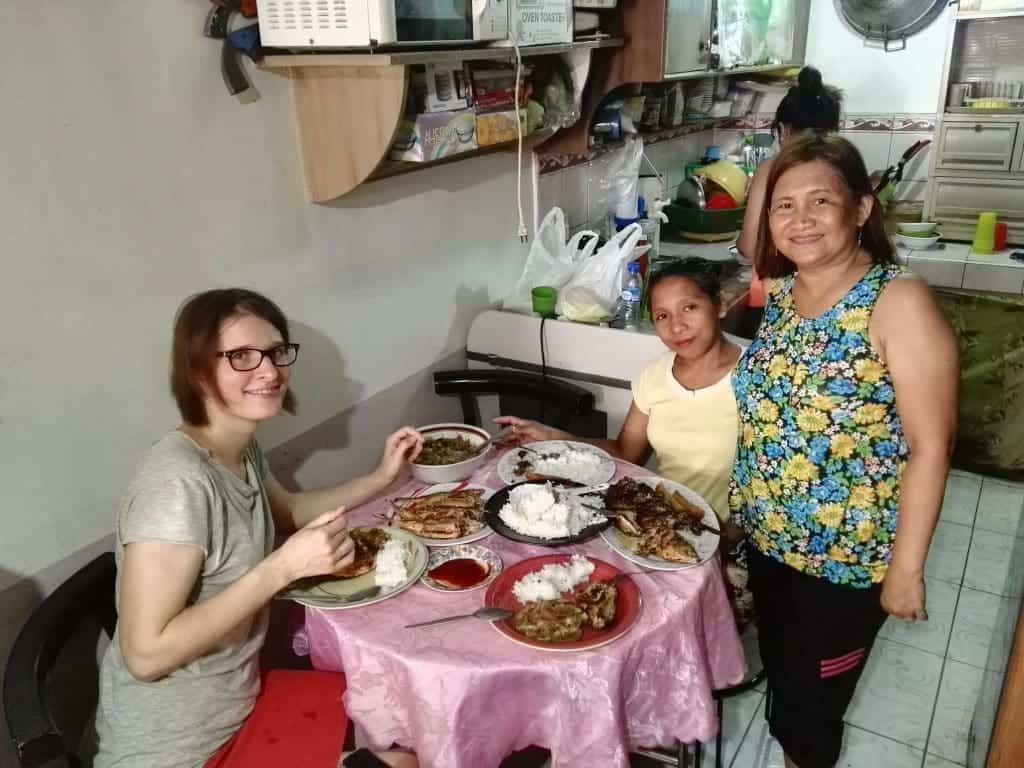
‘I can only say that,’ the mother answered, when we asked her the latter question: ‘If we did not believe in God and his goodness, we would not survive. But seeing each day again and again that He caters for all our needs, this gives us hope and happiness.’
Grateful to yourself or to God?
We westerners, who usually have everything in abundance, are losing faith in God, because we do not think we need Him or we are not aware of the fact, that He is the one who gives us what we have.
To whom can we be grateful to live our comfortable and leisurely life? To ourselves? And why are we still unhappy and want more of what we have? Do you know the answers? You may share your opinion with us in the comments below.
Nace Volčič
P.s. Thanks for your donations. Being solidary is what makes us human!
